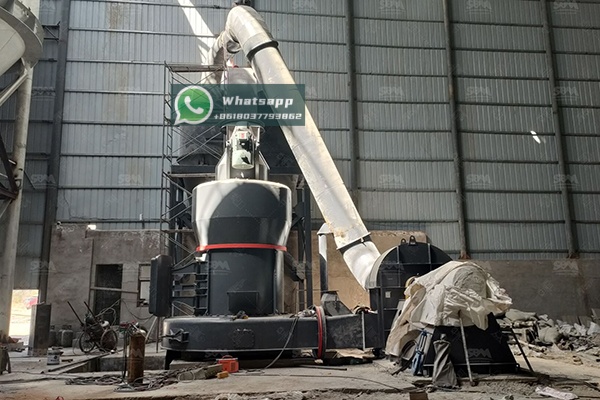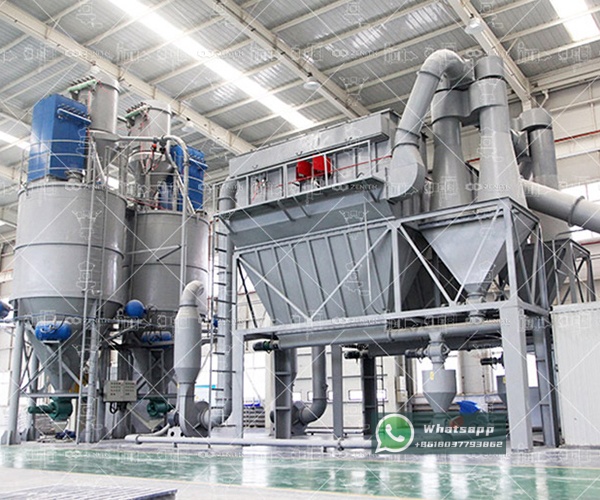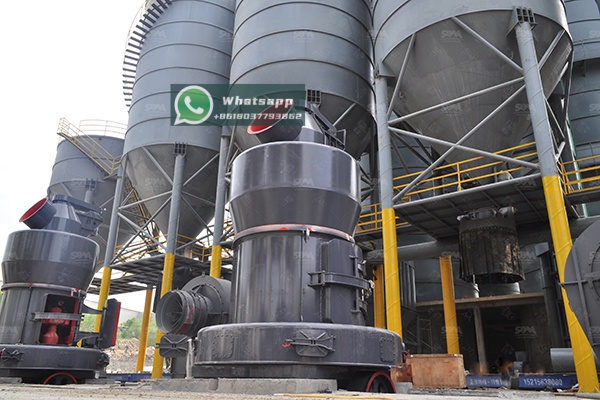The pursuit of enhanced material properties in the plastics and polymer industry has led to the widespread use of functional fillers. Among these, barite (barium sulfate, BaSO4) stands out as a critical mineral additive, prized for its high density, chemical inertness, brightness, and low abrasiveness. Its primary role is to increase the density of polymer composites, which is essential for applications requiring sound dampening, vibration reduction, and radiation shielding. However, the efficacy of barite is intrinsically linked to its particle size distribution, purity, and surface morphology, all of which are determined by the grinding technology employed. This article delves into the specific requirements for barite in high-performance plastics and explores how advanced grinding solutions from industry leaders like Shanghai Zenith Machinery Co., Ltd. are pivotal in meeting these demanding specifications.
Barite’s high specific gravity (approximately 4.5 g/cm³) makes it an ideal weighting agent. In polymers such as PVC, polypropylene, and engineering plastics, it adds significant mass without compromising key mechanical properties to the same extent as other fillers. Beyond density, barite improves dimensional stability, reduces shrinkage, and enhances the surface finish of molded parts. For applications in automotive (e.g., under-the-hood components for vibration damping), construction (soundproofing panels), and medical devices (X-ray shielding aprons and barriers), the consistent quality of the barite powder is non-negotiable.
The performance of barite-filled polymers is highly dependent on the fineness and particle size distribution of the barite powder. Ultra-fine particles with a narrow size distribution ensure uniform dispersion within the polymer matrix, leading to superior mechanical strength, improved surface quality, and consistent density throughout the final product. Coarse or irregularly sized particles can act as stress concentrators, leading to premature failure, and can cause issues during processing, such as equipment wear and surface defects.

Grinding barite to the stringent specifications required by the plastics industry presents several challenges. Barite is a relatively soft mineral (3-3.5 on the Mohs scale), but achieving a consistent, ultra-fine powder (often down to D97 < 10 microns or even finer) without over-grinding or generating excessive heat is complex. Over-grinding can lead to particle agglomeration and increased energy consumption, while excessive heat can degrade the barite or any surface modifiers applied. Furthermore, the grinding system must be designed to handle the high density of the material efficiently and maintain a contamination-free environment to preserve the brightness and chemical purity of the final product.
Shanghai Zenith Machinery Co., Ltd., a renowned manufacturer of ore grinding equipment, has made significant strides in the field of ultra-fine powder processing. Their expertise is particularly relevant for the barite processing sector. Zenith’s grinding mills are engineered to deliver precise particle size control, high efficiency, and operational reliability, making them ideal for producing high-quality barite fillers.
For the production of fine and ultra-fine barite powders, two of Zenith’s products are exceptionally well-suited: the LUM Ultrafine Vertical Mill and the XZM Ultrafine Grinding Mill.
The LUM Ultrafine Vertical Mill represents the cutting edge of grinding technology. It integrates grinding, drying, classifying, and conveying into a single, compact unit. This integrated approach is highly beneficial for barite, as it ensures a dry process that maintains product purity. The mill’s advanced classifying system is key to achieving a tight particle size distribution, which is critical for polymer applications. The intelligent control system allows for precise adjustments to fineness and output, ensuring consistent product quality batch after batch.
The following table outlines the technical parameters of the LUM series, with the LUM1125 model being an excellent choice for mid-to-large-scale barite grinding operations targeting fineness between 5-30 microns (D97).
| Model | Main machine power (kW) | Capacity (t/h) | Size distribution D97 (μm) |
|---|---|---|---|
| LUM1125 | 160-200 | 1.2-9.5 | 5-30 |
| LUM1436 | 250-280 | 2.0-13.5 | 5-30 |
| LUM1736 | 355-400 | 2.3-15 | 5-30 |

For operations requiring even finer barite powders, up to 2500 mesh, the XZM Ultrafine Grinding Mill is the ideal solution. This mill is specifically designed for producing superfine powders from soft to medium-hard materials. Its unique grinding ring and roller design, coupled with a high-efficiency classifier, enable it to achieve fineness levels that are difficult to reach with conventional mills. The XZM mill is known for its reliability, low maintenance, and energy efficiency, making it a cost-effective choice for high-value barite products.
The table below shows the specifications for the XZM series. The XZM221 model is particularly suitable for specialized barite grinding where ultra-fine particle sizes are mandated by high-end polymer applications.
| Model | Working diameter (mm) | Max feed size (mm) | Final size (mesh) | Output (kg/h) | Main motor power (kW) |
|---|---|---|---|---|---|
| XZM221 | Φ800 | ≤20 | 325-2500 | 500-4500 | 75 |
| XZM268 | Φ1680 | ≤20 | 325-2500 | 5000-25000 | 315 |
The quality of barite filler is a decisive factor in the performance of high-density plastics and polymers. Moving beyond simple grinding to precision particle engineering is essential for meeting the industry’s evolving demands. Shanghai Zenith Machinery Co., Ltd., with its comprehensive portfolio of advanced grinding equipment like the LUM Ultrafine Vertical Mill and the XZM Ultrafine Grinding Mill, provides reliable and efficient technological solutions. By leveraging such advanced milling technology, barite processors can consistently produce high-purity, ultra-fine powders that empower polymer compounders to develop superior, high-value end products for the most demanding applications.
